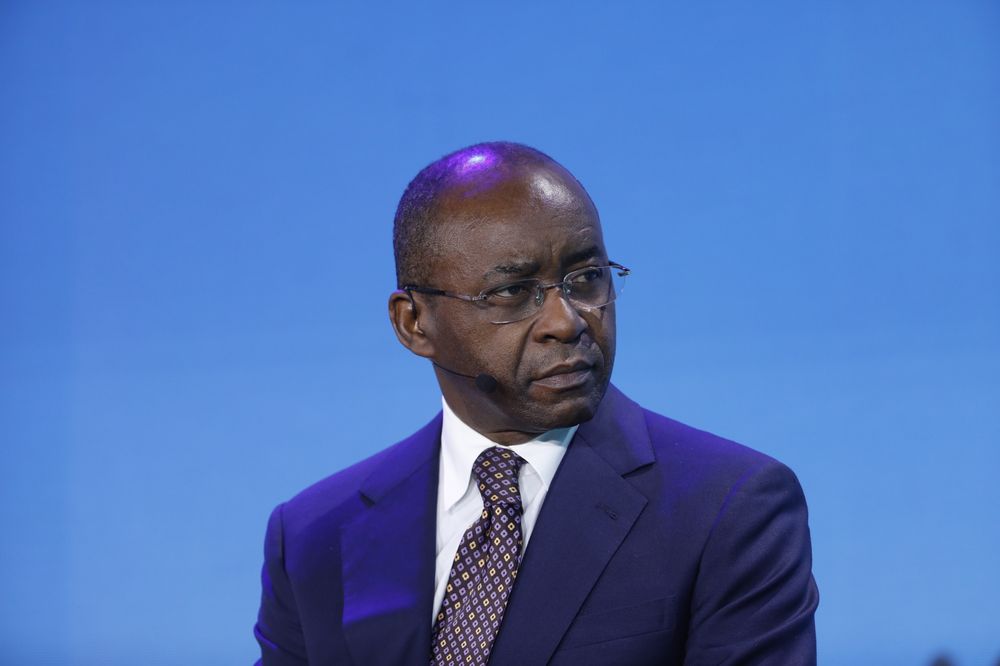Econet’s Zimbabwean CEO Strive Masiyiwa to invest in data centres on the continent
Zimbabwean billionaire Strive Masiyiwa, who has raised more than $1bn to ensure the growth of his group Econet, has ranked first in our exclusive Africa Digital ranking.
Strive Masiyiwa, who celebrated his 60th birthday on 29 January, is a philanthropist and member of the task force set up by the African Union (AU) to fight against Covid-19 as well as on the boards of several multinationals including Unilever and Bank of America. He is also the only billionaire from Zimbabwe. Masiyiwa has above all, for more than 30 years, been one of the main entrepreneurs leading the continent’s digital transformation.
Famous for ending the state monopoly in Zimbabwe’s telecoms sector in the 1980s and having gone through the ranks of the guerrillas as well as the lecture halls of the University of Wales, the now London-based engineering graduate has shown, since his early days in business, an uncommon flair and capacity to bounce back.
Arm wrestling
Masiyiwa quickly built an ecosystem around his Econet Group that extended beyond Zimbabwe’s borders and invested massively in South Africa. He then increased its partnerships, spreading subsidiaries from Botswana to Lesotho, from Rwanda to Nigeria and Burundi, and then to other continents. Masiyiwa continued to believe in the idea of not sticking to one specialisation, of being and staying – as much as possible – one step ahead.
Therefore, the Econet Group launched itself into satellite, terrestrial and submarine cables, subscription television (under the name of Kwese TV, its biggest failure to date) and – more recently – data centres, which it describes as “a revolution that will mark a new era for the technology sector”.
READ MORE Fibre optic in DRC: Strive Masiyiwa’s group plans to deploy a 4000km network
Masiyiwa’s journey has not been one without mistakes, and that is what makes it exciting. He won his legal battle with the Zimbabwean authorities over opening up telecommunications to competition, but he paid a high price for it as he had to leave the country, where his relations with the political authorities remain tense.
In 2019 especially, the Harare authorities’ decision to ban the use of foreign currencies on their soil and to authorise only the Zimbabwean dollar seems to have brought him to his knees. Between market mistrust and inflation, the local currency lost 95% of its value and the businessman, whose assets are still listed in Zimbabwe, saw his wealth plummet. In a few months, his fortune fell from $2.3bn to $1.1bn.
The Covid-19 pandemic and the accompanying economic crisis have come at the worst possible time for the Econet Group and its boss. However, it managed to bounce back in spectacular fashion during 2020.
Its subsidiary Liquid Telecom, renamed Liquid Intelligent Technologies, managed a few weeks ago to raise $840m on the markets to restructure its debt and continue its development.
Managed by its former lawyer, Nic Rudnick, it is now Africa’s leading fibre-optic operator, running a network of more than 70,000km from Cape Town to Cairo, with a recent link to Muanda on the Angolan coast.
At the end of 2020, another of its companies, Africa Data Centres (ADC), attracted the attention of the International Development Finance Corporation – a US institution supporting investment in developing countries – which invested $300m. ADC, which already manages five data centres on the continent (in South Africa, Kenya, Rwanda and Nigeria) and is aiming to establish new ones in Ghana, Morocco and Egypt, is both promising and strategic.
Retain control over its data
At a time when the supply of digital services, in particular cloud storage, is exploding on the continent, exercising control over data centres promises to be decisive. While the US has no intention of abandoning the field to Chinese companies, Africa must also get involved if it hopes to retain control over the management of its data.
Also weakened in 2019 by the failure of Kwese TV, financed via a $375m loan, Masiyiwa had to sell 8% of Liquid Telecom for $180m to relieve his group’s cash flow. In 2020, after having considered selling 20% to 30% of his fibre optic company, he finally managed to turn things around.
The billionaire’s impressive address book is no doubt a factor of his success. He has long been a fixture with decision-makers around the world, whether on boards of directors, at the AU, or through his numerous philanthropic activities often linked to the Higher Life Foundation, which he founded in 1996 with his wife Tsitsi.
READ MORE China’s Jack Ma: An Africa strategy of connect and influence
Particularly concerned with building bridges between Africa and the rest of the world as well as with the emergence of a generation of young graduates on the continent, the entrepreneur has already awarded more than 100,000 scholarships. He has also set up, with former US president Barack Obama’s support, a programme aimed at sending young US citizens to work in his Africa-based companies at the beginning of their careers.
And because it’s always wise to have friends in high places, Masiyiwa is also close to Chinese billionaire Jack Ma, to whom he helps open the doors of presidential palaces across the continent.








